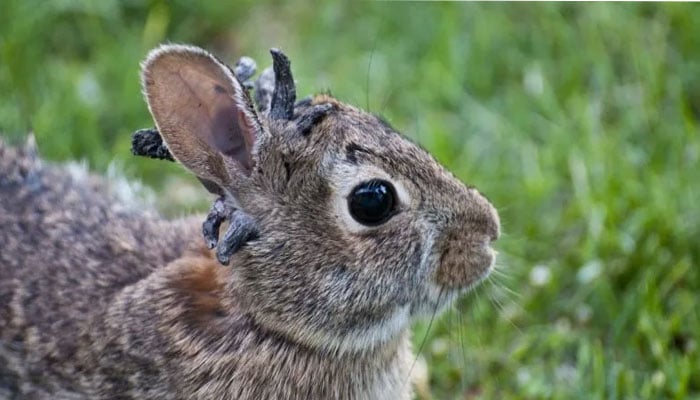
A virus called cottontail papilloma virus (CRPV) is causing increasingly spreading and alarming horn-like growths sprouting from the heads of wild rabbits in Colorado, which leads to the sightings of “Frankenbunnies.”
The disorder is rapidly spreading through fleas and ticks. These growths can turn into tentacles, which cause disruption in rabbits' ability to drink and eat.
Colorado Parks and Wildlife (CPW) has confirmed that the virus is affecting wild cottontails and domestic rabbits are also at a higher risk of infection.
Most of the rabbits suffering from this disease may survive, and some tentacles may eventually disappear; however, in the worst-case scenario, domestic rabbits may develop cancer.
Residents of Fort Collins have reported multiple sightings, with one rabbit returning year after year, its growth worsening.
It is pertinent to mention that CRPV can not infect other pets and humans. Still, CPW urged them to avoid touching infected rabbits.
A veterinarian can surgically remove these tumours, and there is no known treatment for this disease.
The disease rapidly spreads in the Midwest and warmer months, when insect activity peaks.
Pet owners are strongly advised to keep domestic rabbits inside their houses and away from wild animals.












